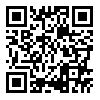مجله رویش روانشناسی از دادن گواهیهای کاغذی معذور است. لطفا تقاضا نکنید. همه گواهی ها در صفحه شخصی کاربران موجود است.
year 9, Issue 4 (Summer 2020 2020)
Rooyesh 2020, 9(4): 93-102 |
Back to browse issues page
Download citation:
BibTeX | RIS | EndNote | Medlars | ProCite | Reference Manager | RefWorks
Send citation to:



BibTeX | RIS | EndNote | Medlars | ProCite | Reference Manager | RefWorks
Send citation to:
Mahmoudpour A, Dehghanpour S, Vazifedan F. (2020). The prediction of distress tolerance based on attachment styles, frustration tolerance and religious attitude in divorced women. Rooyesh. 9(4), 93-102.
URL: http://frooyesh.ir/article-1-2024-en.html
URL: http://frooyesh.ir/article-1-2024-en.html
1- Ph.D student of Counseling, Department of Counselling, Faculty of Psychology and Educational Sciences, Allameh Tabataba’i University, Tehran, Iran , MAHMOUDPOUR.COUNSELLOR@YAHOO.COM
2- M.Sc. in Family counseling, Department of Counselling, Faculty of Psychology and Educational Sciences, Shahid Chamran University of Ahvaz, Ahvaz, Iran.
3- M.Sc. in School counseling, Department of Counselling, Faculty of Psychology and Educational Sciences, Allameh Tabataba’i University, Tehran, Iran.
2- M.Sc. in Family counseling, Department of Counselling, Faculty of Psychology and Educational Sciences, Shahid Chamran University of Ahvaz, Ahvaz, Iran.
3- M.Sc. in School counseling, Department of Counselling, Faculty of Psychology and Educational Sciences, Allameh Tabataba’i University, Tehran, Iran.
Abstract: (5053 Views)
Divorce is considered as one of the social harms that can cause many behavioral and psychological problems. This study examined Prediction of distress tolerance based on attachment styles, frustration tolerance and religious attitude in divorced women. The study had a descriptive correlational research design. The research population included all women who referred to the welfare counseling centers in Tehran in July and August of 2019, 225 of whom were selected as the sample by the available sampling method. The Simons and Gahar Distress Tolerance Scale (2005), Hazen and Shaver’s Attachment style Questionnaire(1987), Harrington's Frustration Discomfort Scale (2005) and Allport’s Religious Orientation questionnaires(1967) were used for gathering the data. The gathered data were analyzed through running Pearson correlation and multiple linear regression on SPSS. The findings indicated a significant relationship between attachment styles, frustration tolerance and religious attitudes. Therefore, according to the findings of this study, it can be concluded that distress tolerance interacts with several factors, including attachment style, frustration tolerance and their religious attitude (P<0/05). The results of multiple regression also showed that the predictor components of the study could predict 34% distress tolerance. Therefore, based on the findings of the present study, it can be concluded that the tolerance of distress in divorced women interacts with several factors, including attachment style, frustration tolerance and their religious attitude. Thus, psychological empowerment programs and personal growth by focusing on effective social communication with individual independence can increase the ability to encounter effectively with frustrations that a person suffers as a result of divorce. Also, deep relationship with God can be accompanied by positive changes on the eve of distress tolerance in the statistical population under study.
Type of Article: Research |
Subject:
Family Psychology
Received: 2020/04/10 | Accepted: 2020/04/19 | ePublished: 2020/06/30
Received: 2020/04/10 | Accepted: 2020/04/19 | ePublished: 2020/06/30
Send email to the article author
| Rights and permissions | |
 |
This work is licensed under a Creative Commons Attribution-NonCommercial 4.0 International License. |







